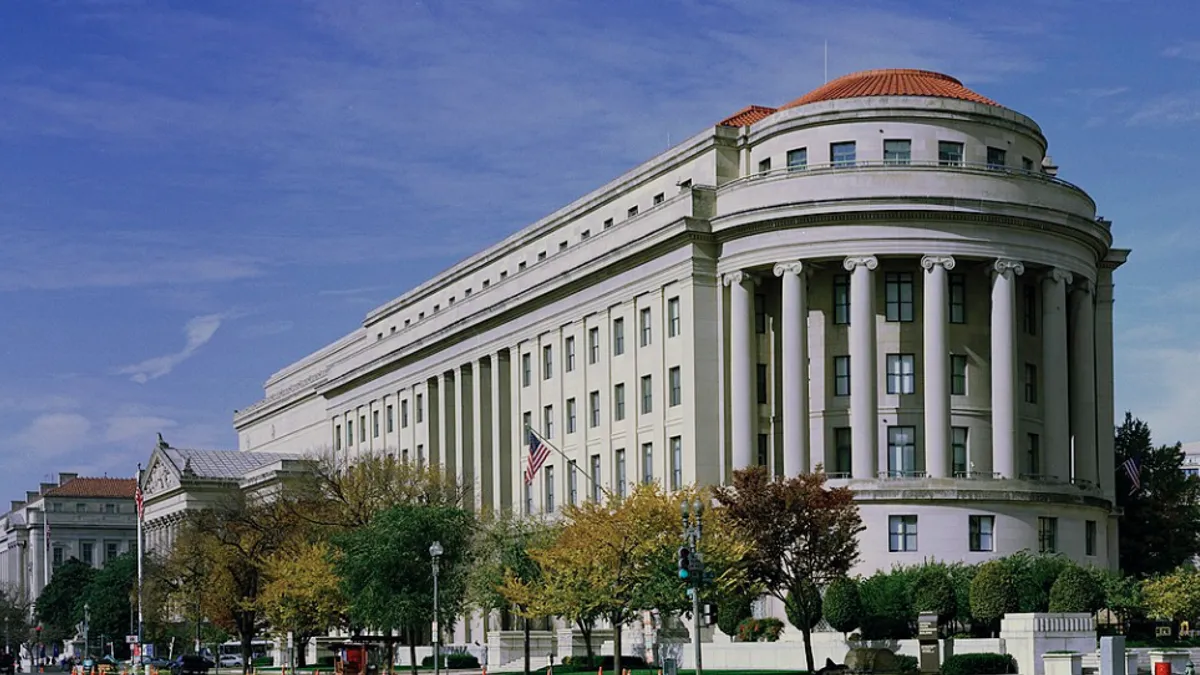The high bar to secure a consent decree from the Department of Justice to get your merger through federal antitrust review doesn’t mean there’s a “shadow” process going on behind the scenes, attorneys from the department said at the American Bar Association’s antitrust law spring meeting.
“There’s been a narrative over the last few months that there’s some kind of shadow consent decree approval process where we’re actually doing consent decrees but we're not announcing them,” Andrew Foreman, deputy assistant attorney general for antitrust, said. “That’s categorically false. It’s not happening. We don’t really know where this is coming from.”
Foreman said there might be an instance or two where the antitrust division decides to monitor a merger instead of bringing an enforcement action, but that shouldn’t suggest the companies have tweaked their deal in some kind of informal process to get it approved.
Having an informal process like that goes against the spirit of the Tunney Act, said Maggie Goodlander, deputy assistant attorney general overseeing the antitrust division’s appellate program.
The Tunney Act refers to the 1974 law that subjects DOJ antitrust decisions to court review to ensure deals are in the public interest.
“The Tunney Act is one of the great post-Watergate statutes,” Goodlander said. “The notion that there are shadow agreements that come outside the scope of the Tunney Act is really inconsistent with our fundamental values.”
Fix it first policy
There are also some views about the division’s so-called fix it first policy that would benefit from a clearer understanding of what that’s all about, Foreman said.
The term refers to companies heading off merger objections from antitrust enforcers and proposing a divestiture or other remedy before putting the deal through formal review.
By law, deals of a certain size must be reported to DOJ and the Federal Trade Commission for what’s known as a Hart-Scott-Rodino (HSR) review to ensure the deal doesn’t pose a substantial risk to market competition.
DOJ officials cautioned against thinking a proposed divestiture or other remedy in the spirit of making the deal palatable to antitrust enforcers means concerns are resolved.
“If we’re faced with a situation where someone says, ‘Don’t worry about the merger because there’s this remedy we’re going to do,’ the bar for that remedy is quite high,” said Michael Kades, deputy assistant attorney general.
Deals will be challenged if they could substantially lessen competition, so any remedy has to meet that standard, he said. It’s not just “whether it’s more likely or not [to lessen that possibility].”
“The risk to the American people can’t be based on … what we hope will happen” because of a divestiture,” said Hetal Doshi, deputy assistant attorney general.
Mixed litigation success
In cases where DOJ moves forward with a lawsuit to stop a merger, the public interest can be served even if the department loses, because the outcome of the litigation can be pro-competitive changes, said Foreman.
He cited the agency’s defeat last year in getting a court to stop the $440 million deal between Booz Allen and EverWatch. Despite the court allowing the deal to go through, the judge cited competitive benefits from the enforcement effort itself, he said.
“She specifically recognized that bringing the litigation injected some uncertainty into the process, so the people managing the bids needed to assume the deal might not go through,” he said, referring to Judge Catherine Blake of the U.S. District Court for the District of Maryland. “They also removed a few interim covenants that caused us concern, including Booz Allen having approval rights over the bids over the B-side. So there can be competitive benefits in litigation even if you don’t ultimately get the decision you want.”
The agency had a big win last year, too, when it stopped Penguin Random House from merging with Simon and Schuster.
That was a win for the labor market, because it protected writers, which will ultimately benefit consumers.
“Authors are going to get paid more money and we’re all going to have access to a more diverse set of books because of that litigation win,” Foreman said.
Doshi said the department’s reputation for being aggressive over the last two years isn’t accurate, because the antitrust division is simply applying the law when it believes a deal could significantly lessen competition, as spelled out in law.
“It’s just enforcement, not aggressive enforcement,” she said.



















